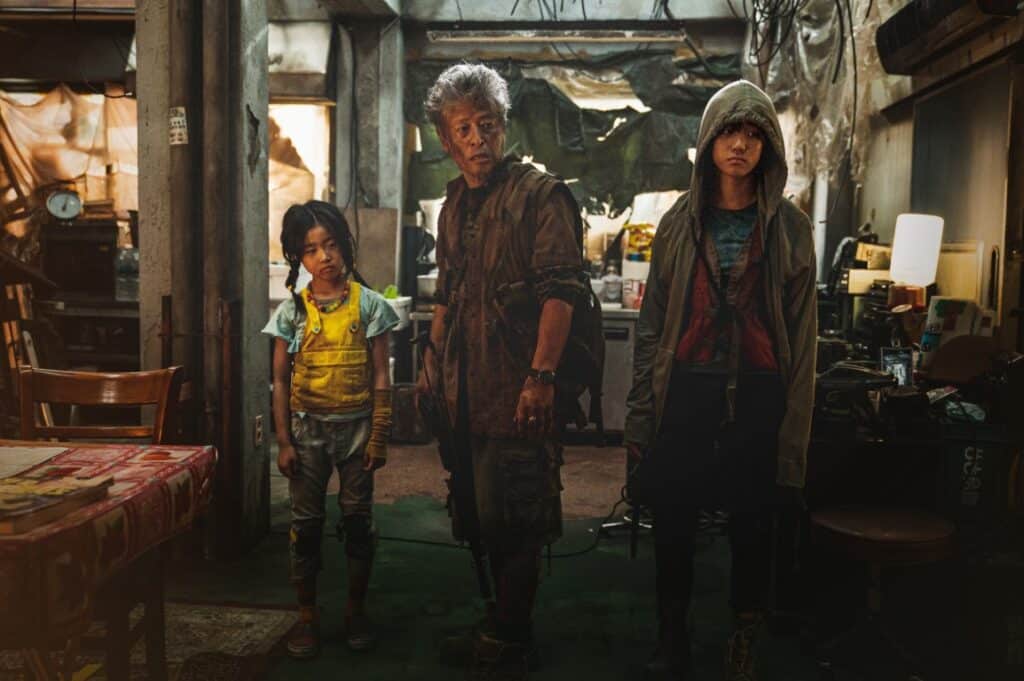Read also:
How to Watch FX Live Without CableHow To Watch AMC Without CableHow to Watch ABC Without CableHow to Watch Paramount Network Without CableSilly, goofy, and totally brain-dead, this South Korean zombie flick bears only a passing resemblance to its inventive forebear.
The zombie genre has, pardon the omnipresent pun, been done to death — The Walking Dead and the glut of and yet, East Asian filmmakers have been finding all kinds of new ways to shake up the undead paradigm. See Netflix’s South Korean zombie show Kingdom, for instance, or the giddy showbiz comedy of last year’s One Cut of the Dead. Yeon Sang-ho‘s 2016 thrill-ride Train to Busan was one of them, an inventive little bloodbath that didn’t just find fun ways to spin the premise of “zombies on a train”, but tells a nifty morality tale about the ways disasters strip us down to our most primal instincts. Now, Yeon returns to direct Peninsula, a sequel-in-little-but-name that still offers some fast-running thrills, but bogs itself down in a depressing sense of familiarity.
We open in the middle of the zombie apocalypse, and military officer Jung-seok (Gang Dong-won) driving his family, including his sister, brother-in-law Chul-min (Kim Do-yoon) and their child to safe harbor on a boat. Right away, he’s faced with an impossible choice: save the young family who ask desperately for a ride (even offering to just have them save their young daughter), or keep driving? He chooses the latter, a decision which breaks his heart, but will drive the back half of this story in predictably heartbreaking ways.
Of course, the refugee ship has its own dangers, with a small zombie breakout leading to the death of Jung-seok’s sister and her son, in one of the film’s most heartbreaking and effective moments. Cut to four years later: the world is ravaged, the Incheon Peninsula is entirely overrun by zombies, and Jung-seok and Chul-min eke out a modest existence among other refugees in Hong Kong (while the latter blames the former for getting his family killed). But salvation comes when a gang taps them to accompany a small team back to the peninsula to recover a truck full of money that was left behind in the zombie exodus.

Don’t get too attached to the colorful characters that accompany them back to the all-too-familiar zombie wasteland of abandoned cars and worn-down buildings; they’re not going to last too long. Before you can say “brains,” the team’s wiped out and Jung-seok and Chul-min are separated. Jung-seok, for his part, gets picked up by the remnants of the family he left behind on that fateful day, who’ve been surviving with their wits, some killer driving skills, and the aid of their survivalist grandfather. Chul-min, meanwhile, gets captured by a group of unscrupulous military men who’ve decided to turn the apocalypse into their own personal fiefdom. They throw him into their own version of zombie Thunderdome in the courtyard of an abandoned mall, so they can bet on who will survive.
The path these two must take to get back to each other, and the sacrifices they make along the way, would seem rife with thematic import. Unfortunately, while the action is as stylish as Busan (complete with John Wick-style gunplay and the genuine thrills of those Thunderdome sequences), so much of Peninsula rings flat.
What struck me about Busan was its inventiveness, blending the high-speed train thriller with the zombie movie to create sequences and moments I’d genuinely never seen before. Peninsula, for all its polish, merely apes the films and moments that serve as inspiration. There are the Mad Max comparisons, of course (a multi-vehicle chase in the final act feels ripped right out of Fury Road), and the John Wick films’ approach to action. It’s delivered with technical competence, but it’s hardly moving.
Peninsula, for all its polish, merely apes the films and moments that serve as inspiration.
The same can’t be said, however, of the car-based chase sequences, as fully-CG vehicles bounce around the streets of Incheon like podracers, with plastic masses of zombie flesh in pursuit.
Much of Peninsula‘s problems lie with the characters, who are as stock as stock could be, and serve mostly as vehicles for groan-worthy melodrama. Jung-seok is a figure wracked by guilt, but his and Chul-min’s dynamic is hardly explored, especially once they’re separated (if you’re looking for a tearful reconciliation of their character conflict, get ready for disappointment). Instead, Jung-seok merely gets an expected shot at redemption for his past mistake, which the screenplay hardly gives him time to ruminate over.
The rest of the cast are stock archetypes, and performances are hampered by a curious insistence on making the Korean actors say half their dialogue in English. Could it be a gambit to capitalize on Busan‘s surprising Western success? Perhaps. But either make it work or let the cast work in their native language. Whichever tongue they’re speaking in, the script does them no favors, paring down the first Busan‘s innate sense of tragedy into a series of melodramatic speeches buried by overwrought musical flourishes. The final fifteen minutes, in which the leads play hot-potato over who’s going to make the big sacrifice play, will make your eyes roll back in your head whether you’re dead or undead.
I truly wish I liked Peninsula more, especially given its stellar pedigree. But it looks like Yeon couldn’t make lightning strike twice, struggling to overcome the mighty obstacles of the zombie genre as a whole. You can expand your rotting zombie canvas from a train to a whole city, but Peninsula is proof that less is sometimes more.
Train to Busan Presents: Peninsula is currently in select theaters.